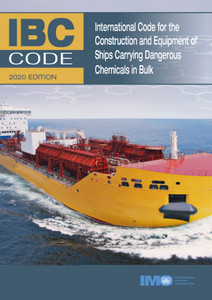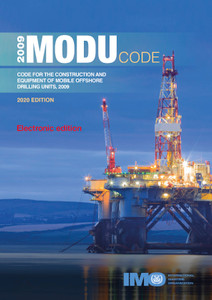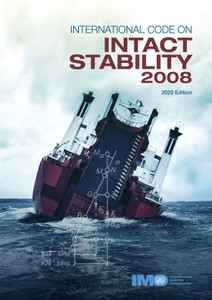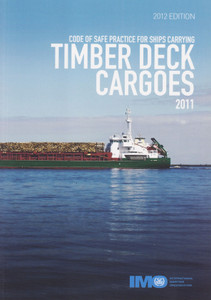
This publication sets out the requirements of the International Code on the Enhanced Programme of Inspections during Surveys of Bulk Carriers and Oil Tankers, 2011 (2011 ESP Code). The Code establishes a survey standard for the regular and safe survey of the cargo and ballast areas of oil tankers and bulk carriers.
The 2011 ESP Code became mandatory under SOLAS regulation XI-1/2. Parts A and B of annex A of the Code provide the requirements for bulk carriers with single-side skin and double-side skin construction. Parts A and B of annex B of the Code provide the requirements for oil tankers with double-hull and non-double-hull construction. The Code has been designed to closely align with the IACS Unified Requirements (UR) Z10 (Hull surveys).
The ESP Code provides, in particular, requirements for:
- renewal, annual and intermediate surveys
- preparations for surveys
- documentation on board
- procedures for thickness measurements
- acceptance criteria
- reporting and evaluation of surveys.
This edition contains all amendments to the Code since its adoption: resolutions MSC.371(93), MSC.381(94), MSC.405(96), MSC.412(97) and MSC.461(101). The latest amendments in resolution MSC.461(101) entered into force on 1st January 2021.
Foreward
1 The International Code on the Enhanced Programme of Inspections during Surveys of Bulk Carriers and Oil Tankers, 2011 (2011 ESP Code) was adopted on 30 November 2011 by Assembly resolution A.1049(27) and subsequently made mandatory through amendments to SOLAS regulation XI-1/2 (resolution MSC.325(90)) which entered into force on 1 January 2014. This regulation requires that bulk carriers and oil tankers as defined in the SOLAS Convention shall be subject to an enhanced programme of inspections in accordance with the 2011 ESP Code. The enhanced survey programme shall be carried out during the surveys prescribed by regulation I/10 of the Convention.
2 The 2011 ESP Code will also become mandatory under the MARPOL Annex I Condition Assessment Scheme (CAS), adopted by resolution MEPC.94(46)), pending the entry into force, on 1 October 2014, of relevant amendments to CAS, adopted by resolution MEPC.236(65). The purpose of the CAS is verification that the structural condition of single-hull oil tankers at the time of survey is acceptable and, provided subsequent periodical surveys are satisfactorily completed and effective maintenance is carried out by the ship’s operator, will continue to be acceptable for a continued period of operation.
3 The Code consists of two annexes as follows: .1 Annex A (Code on the enhanced programme of inspections during surveys of bulk carriers), including:
–– part A: Code on the enhanced programme of inspections during surveys of bulk carriers having single?side skin construction; and
–– part B: Code on the enhanced programme of inspections during surveys of bulk carriers having double?side skin construction.
.2 Annex B (Code on the enhanced programme of inspections during surveys of oil tankers), including:
–– part A: Code on the enhanced programme of inspections during surveys of double-hull oil tankers; and
–– part B: Code on the enhanced programme of inspections during surveys of oil tankers other than double-hull oil tankers.
4 The Maritime Safety Committee (MSC) agreed that the Code should be closely aligned with the IACS Unified Requirement (UR) Z10 (Hull surveys) in order to keep it simple and user-friendly. Consequently, MSC 92 in June 2013 concurred with a procedure for regular updates to the 2011 ESP Code developed by the Sub-Committee on Ship Design and Construction (DE) at its fifty-seventh session.
5 The 2011 ESP Code supersedes the Guidelines on the enhanced programme of inspections during surveys of bulk carriers and oil tankers (resolution A.744(18)).
Resolution A.1049(27) – International Code on the Enhanced Programme of Inspections during Surveys of Bulk Carriers and Oil Tankers, 2011 (2011 ESP Code)
Annex A – Code on the enhanced programme of inspections during surveys of bulk carriers
Part A – Code on the enhanced programme of inspections during surveys of bulk carriers having single-side skin construction
1 General
2 Renewal survey
3 Annual survey
4 Intermediate survey
5 Preparations for survey
6 Documentation on board
7 Procedures for thickness measurements
8 Acceptance criteria
9 Reporting and evaluation of survey
Part B – Code on the enhanced programme of inspections during surveys of bulk carriers having double-side skin construction
1 General
2 Renewal survey
3 Annual survey
4 Intermediate survey
5 Preparations for survey
6 Documentation on board
7 Procedures for thickness measurements
8 Acceptance criteria
9 Reporting and evaluation of survey
Annex B – Code on the enhanced programme of inspections during surveys of oil tankers
Part A – Code on the enhanced programme of inspections during surveys of double-hull oil tankers
1 General
2 Renewal survey
3 Annual survey
4 Intermediate survey
5 Preparations for survey
6 Documentation on board
7 Procedures for thickness measurements
8 Acceptance criteria
9 Reporting and evaluation of survey
Part B – Code on the enhanced programme of inspections during surveys of oil tankers other than double-hull oil tankers
1 General
2 Renewal survey
3 Annual survey
4 Intermediate survey
5 Preparations for survey
6 Documentation on board
7 Procedures for thickness measurements
8 Reporting and evaluation of survey
A??s a specialized agency of the United Nations, IMO is the global standard-setting authority for the safety, security and environmental performance of international shipping. Its main role is to create a regulatory framework for the shipping industry that is fair and effective, universally adopted and universally implemented. ?
In other words, its role is to create a level playing-field so that ship operators cannot address their financial issues by simply cutting corners and compromising on safety, security and environmental performance. This approach also encourages innovation and efficiency.
Shipping is a truly international industry, and it can only operate effectively if the regulations and standards are themselves agreed, adopted and implemented on an international basis. And IMO is the forum at which this process takes place.
- Number of Pages:
- 433
- ISBN:
- 9789280116861
- Published Date:
- November 2020
- Book Height:
- 300 mm
- Book Width:
- 210 mm
- Author:
IMO
- Preview:
- Yes
- Publication Date:
- January 2021






